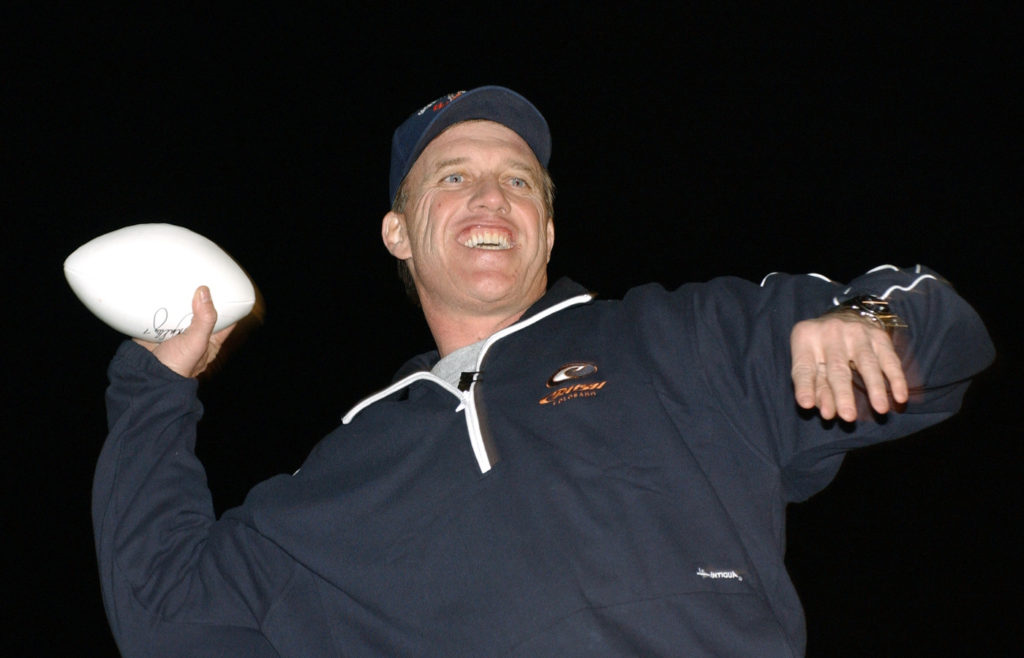Throughout the years, football fans everywhere have known exactly what the name Elway was synonymous with: excellence.
Associated with star quarterback John Elway of the Denver Broncos, many remember the years where he led dramatic drives deep into the playoffs, culminating with Super Bowl victories in 1997 and 1998.

However, it is not well-known that his dad played a huge role in the evolution of the game, as the plays he innovated went on to transform how it was played.
Officially John Elway Sr., Jack Elway overcame the initial disappointment of a football career cut short by inventing the spread offense during his coaching career, a genius play which contributed a great deal to his success over the years.
In this post, we will tell the story of a man that doesn’t get the attention he deserves outside the game.
The shutting of one door opens another
Born and raised in Hoquiam, Washington, Jack excelled as an athlete throughout his youth, leading to him becoming a dominant quarterback on his football team in high school.
Sadly, it all came crashing down shortly after beginning his playing career at Washington State University, as he blew out his knee, effectively ending his chances of going pro.
With this part of his life behind him he tackled his studies with vigor, obtaining a Bachelor’s and a Master’s degree over the space of four years.
The early days of Jack the Coach
While many athletes move on to something unrelated to sport after they hang up their cleats, Jack Elway remained involved with football by getting into coaching.
Jack taught high school in Port Angeles starting in 1953, coaching their football team after classes had concluded for the day.
After a lengthy record of excellence over eight years (which included five titles) at the high school level, Jack started coaching in a full time role in 1961 at Grays Harbor College.
After a five year tenure proving himself at the junior college level, the University of Montana brought him on as an assistant coach, ironically putting back into contact with Jack Swarthout, his old high school coach.
Five years, he took on a role with his alma mater Washington State, serving as an assistant there from 1971 to 1975, before stopping at the University of Idaho for a cup of coffee (5 weeks) in the early months of 1976.
Breaking into the show
After things at the University of Idaho didn’t work out, Jack Elway seized an opportunity to become a head coach in the NCAA.
Hired for the top job at Cal State Northridge in 1976, he led the squad to a winning record over three years before moving up to his first Division I assignment at San Jose State, starting in 1979. Logging a winning percentage of .634 over five seasons, it was the most successful gig in his career.
Afterward, he took the helm at Stanford, his last head coaching role in the NCAA.
He wasn’t done teaching the game yet, as he took the leap over the Atlantic to help build American football in Europe. In 1991 and 1992, he led the Frankfurt Galaxy of the World League of American Football (now known as NFL Europe).
Once he retired from coaching, Jack moved into a different role, as he accepted a front office job with the Denver Broncos from 1992 to 1999, leading the efforts of their scouting department.
The curtain falls when you least expect it
Jack retired from the Broncos in 1999, but he didn’t get to enjoy his retirement for long. On April 15, 2001, he was found by his wife dead. It was later determined that he suffered a heart attack in his sleep while at home in Palm Springs, CA. Dead at the age of 69, he left us all too soon.